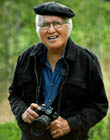|
|
 
|
|
Author
|
Topic: Blu-Ray sound formats
|
|
|
|
|
|
|
Joe Redifer
You need a beating today

Posts: 12859
From: Denver, Colorado
Registered: May 99
|
 posted 12-01-2009 03:52 PM
posted 12-01-2009 03:52 PM





Well, it can appear that way, yes. Dolby TrueHD often sounds much quieter. Remember that Dolby likes to stick in bullshit like midnight modes and other dynamic range limiters into their code to trigger in compatible receivers. All of this shit is difficult to turn off completely and many people don't even know about it. I have noticed on my receiver that I must turn the volume up much higher when playing a Dolby TrueHD mix than with a DTSHDMA mix.
That said, Dolby TrueHD can sound incredible, every bit as good as DTSHDMA. But unfortunately the only Dolby True HD mix that has blown me away so far has been on The Nightmare Before Christmas. Maybe they forgot to include the dynamic range limiters in the code?
The problem is not the codecs themselves, the problem is whoever uses them. If you took the same source and encoded it properly in Dolby TrueHD and DTSHDMA, there would probably be no difference whatsoever. I just don't think the studios use TrueHD properly. A lot of people say that DTS sounds 10 times better than Dolby Digital on DVD. It doesn't. It's just that the source used in the DTS mixes is much louder. I have encoded the same source audio into Dolby Digital and DTS for DVD before, both at the full bitrates they were capable of. There is very little audible difference between the two, and the surrounds and sub certainly weren't more aggressive in one.
On Disney DVDs like Pirates of the Caribbean, the Dolby Digital mix usually sounds better and much less harsh than the DTS mix. It is clear that two different audio masters were used.
| IP: Logged
|
|
Bobby Henderson
"Ask me about Trajan."

Posts: 10973
From: Lawton, OK, USA
Registered: Apr 2001
|
 posted 12-01-2009 06:17 PM
posted 12-01-2009 06:17 PM




"Dialog Normalization" is one of those sound-altering features often used in Dolby Digital and Dolby TrueHD audio tracks. My understanding is Dialog Normalization can be disabled in the audio track if the people authoring the title choose to do so. End users are left jumping through hoops turning of/off various Dolby Digital features.
To date, I have used the "night mode" with Dolby Digital audio only a couple of times. And that was only because a female friend of mine didn't like the startling dynamics found in the "standard" and "maximum" modes.
Dolby TrueHD and DTS HD Master Audio both have tremendous potential, much of which is going largely unused. Both formats can deliver 5.1 or 7.1 audio in 24-bit 96kHz resolution as well as 2.0 stereo in 24-bit 192kHz resolution. Some concert discs and other unique titles, such as Baraka, have taken advantage.
I did notice the upcoming Blu-ray release of Sex Lies & Videotape features a 24-bit 96kHz Dolby TrueHD 5.1 audio track. Arguably overkill there since that movie is overwhelmingly dialog driven.
The best that most movies can seem to do is encode 24-bit 48kHz audio in Dolby TrueHD or DTS-HD Master Audio at bit rates ranging from 3600kb/s to 4600kb/s. Quite a few titles out there are using 16-bit masters and significantly lower bit rates, some of which dip down to levels nearly as low as the 1509kb/s rate used by the "full" version of lossy DTS.
In short, audio masters vary in quality greatly just like film elements and video masters. Blu-ray is just doing a better job of drawing our attention to those differences.
Regarding movie studio preferences between Dolby TrueHD and DTS-HD Master Audio, a few variables are involved. Hollywood politics could be at work. Maybe the studios using DTS-HD are marketing to what they think Blu-ray customers want. It certainly seems like most home theater fans are drawn more to DTS. The company seems to have an image of upholding higher audio standards while Dolby is more mainstream. What is Dolby and DTS charging studios in licensing fees for their surround formats? Is DTS-HD Master Audio less expensive for studios to use?
I never expected DTS-HD Master Audio to reach a level of dominance on Blu-ray like what is taking place currently.
It wasn't much of a surprise for studios like Universal, MGM or even Lionsgate to use DTS on most or all of their Blu-ray releases. I was a little more surprised to see Fox use DTS-HD exclusively; the studio has used DTS on all but perhaps a couple of its Blu-ray releases. I didn't expect Disney to shift to using DTS-HD. The similar move by Sony has been even more surprising. Paramount/Dreamworks and Warner Bros. are still very much in the Dolby TrueHD camp, although it is interesting to see them dabble with DTS-HD on certain releases.
| IP: Logged
|
|
|
|
|
|
|
|
|
|
|
|
All times are Central (GMT -6:00)
|
|
Powered by Infopop Corporation
UBB.classicTM
6.3.1.2
The Film-Tech Forums are designed for various members related to the cinema industry to express their opinions, viewpoints and testimonials on various products, services and events based upon speculation, personal knowledge and factual information through use, therefore all views represented here allow no liability upon the publishers of this web site and the owners of said views assume no liability for any ill will resulting from these postings. The posts made here are for educational as well as entertainment purposes and as such anyone viewing this portion of the website must accept these views as statements of the author of that opinion
and agrees to release the authors from any and all liability.
|

 Home
Home
 Products
Products
 Store
Store
 Forum
Forum
 Warehouse
Warehouse
 Contact Us
Contact Us




 Printer-friendly view of this topic
Printer-friendly view of this topic













